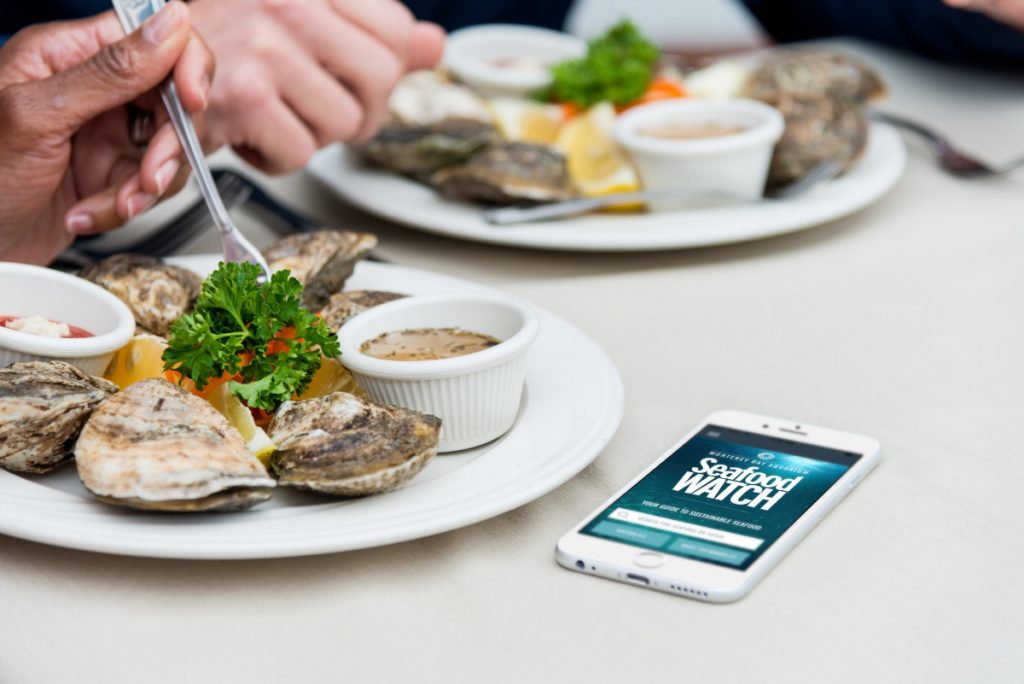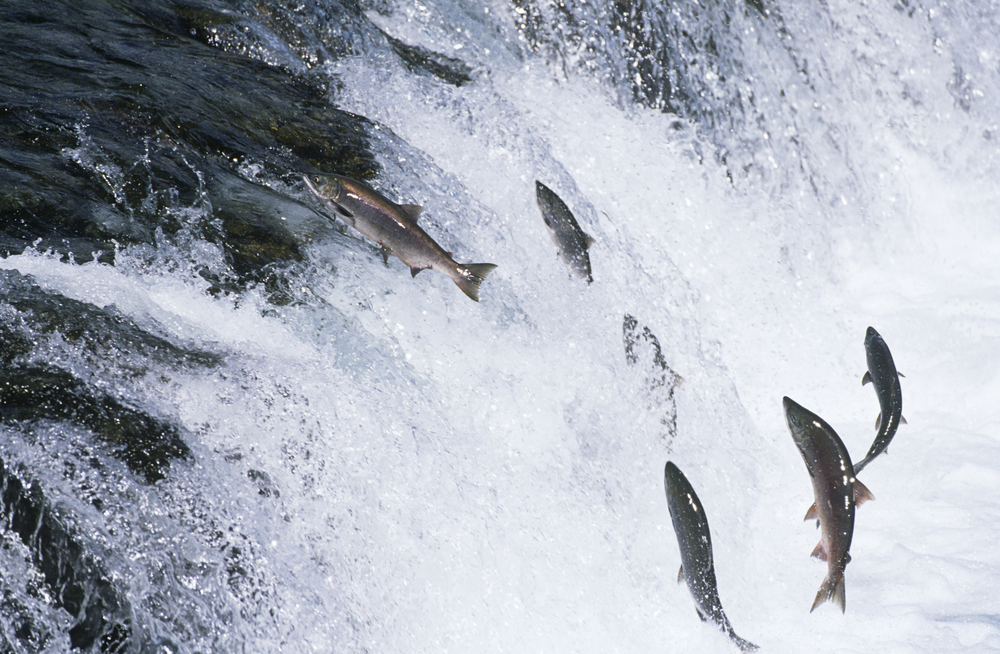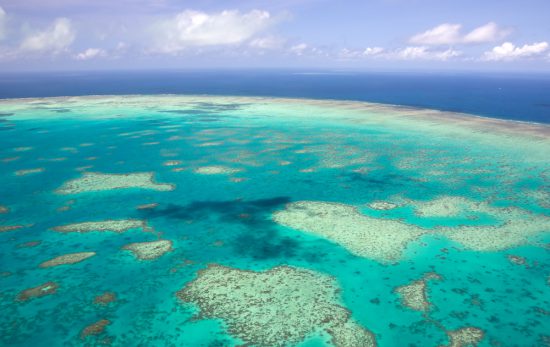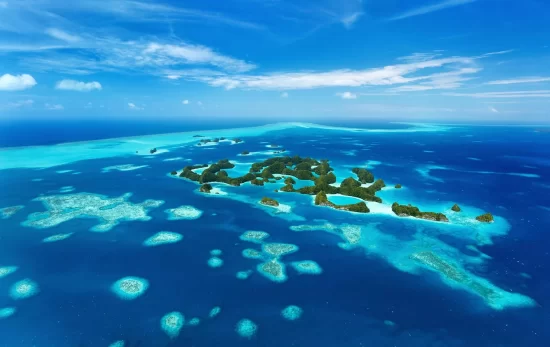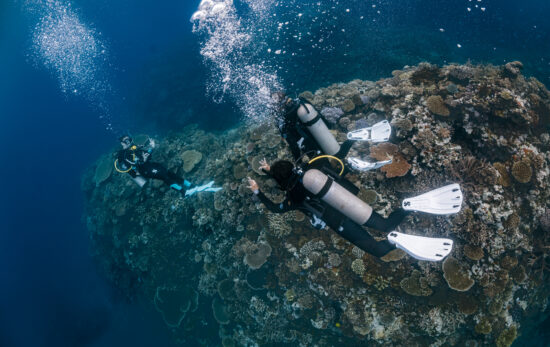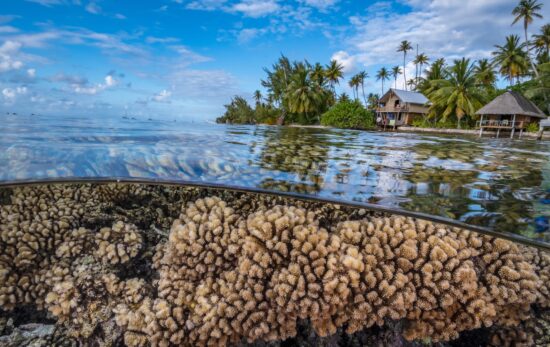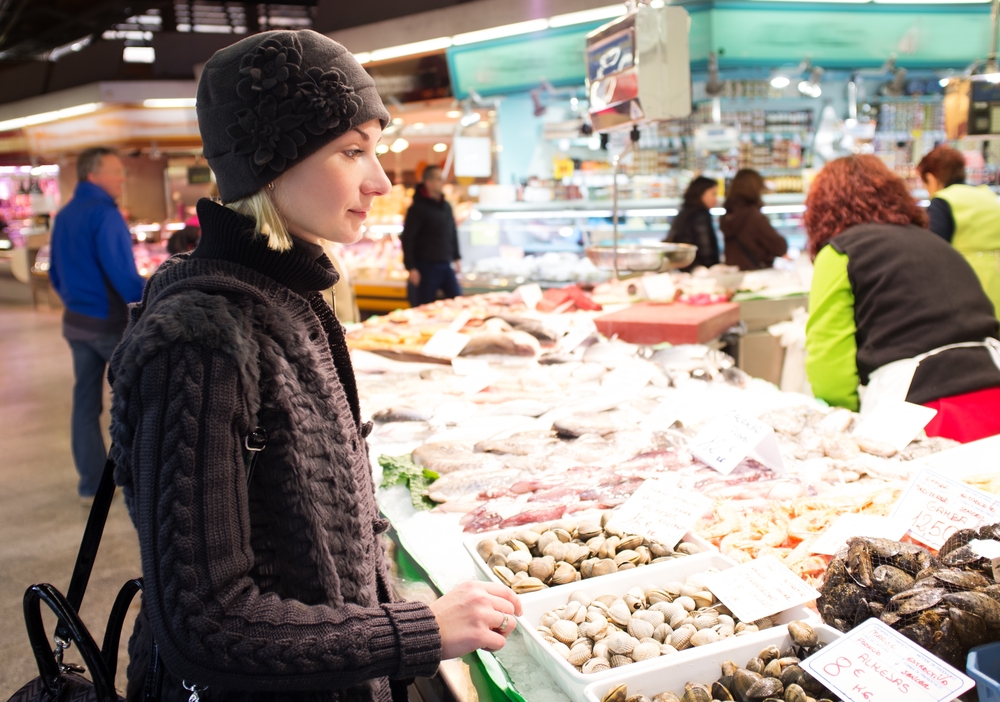
As divers, we want to eat, shop and live in a way that doesn’t harm our reefs—but trying to do so often seems complicated, especially when looking through the glass at the grocery store fish counter. Choices can be tricky. What’s better: wild caught seafood or farmed? Which species of tuna are endangered and which are abundant? Empower yourself to make the best choices for the health of our oceans. Here’s what you need to know.
Start with shellfish
“Right off the bat, I’d say if you want to buy seafood without putting much thought into it, shellfish is a great place to start,” says Ryan Bigelow, program engagement manager for the Monterey Bay Aquarium Seafood Watch program. “Mussels and clams, unlike chickens, love to be packed into tight spots—it’s perfect for them. Because of this, shellfish is a protein that could feed the whole world without issue.”
Download the app and start asking questions
The next step in shopping responsibly is to download Monterey Bay Aquarium’s free Seafood Watch app. To use it, you’ll need to know the name of the fish you want to eat, how it was caught or farmed, and where it was caught or farmed. Color-coded results steer you toward safest picks: Best choices, colored green, are often listed first. Yellow signals good alternatives. Red, surprise, marks choices to avoid.
Avoid most shrimps
“The most popular seafood in the U.S. is shrimp,” says Bigelow. “But the chance that you’ll get wild shrimp is slim to none. Most of it is imported, and most is farmed. And with farmed shrimp, there are problems galore. Between the antibiotics, the destruction of mangrove forests, not to mention the human rights issues … there’s a whole list of things that can go wrong with farmed shrimp.”
Stick with wild salmon, not farmed
“As a rule, if it’s a wild product, it’s at least OK—it may even be a best choice,” says Bigelow. For farmed products, you’ll need more information—aka, you need to ask the where and the how behind that product.
If you’re feeling overwhelmed …
“One of the things we want to avoid is hearing people say that this is too complicated and that they’d rather just eat chicken or beef,” says Bigelow. “Please remember: We are not Beef Watch. We are not Chicken Watch. If we were, you’d see that even our ‘avoid’ fish choices are better than the chicken and beef options. If you’re doing it for environmental reasons, don’t give up on fish.”
Not only is it important to watch what you eat from the seafood counter, but make sure you are also thinking about purchasing ocean-safe products for your household. Learn more with this article: 7 Natural Cleaning Products that Should be in Your Cupboard.
